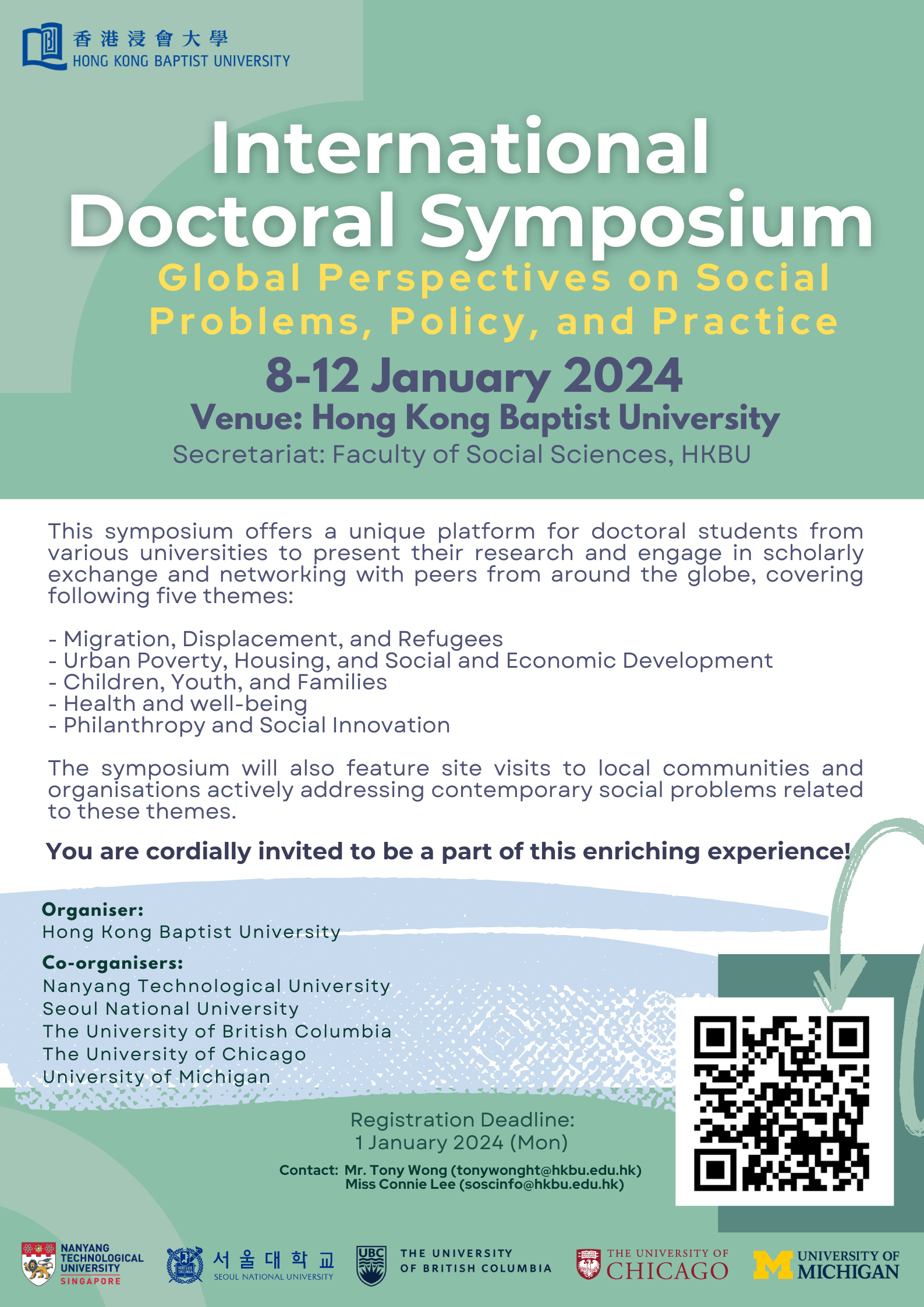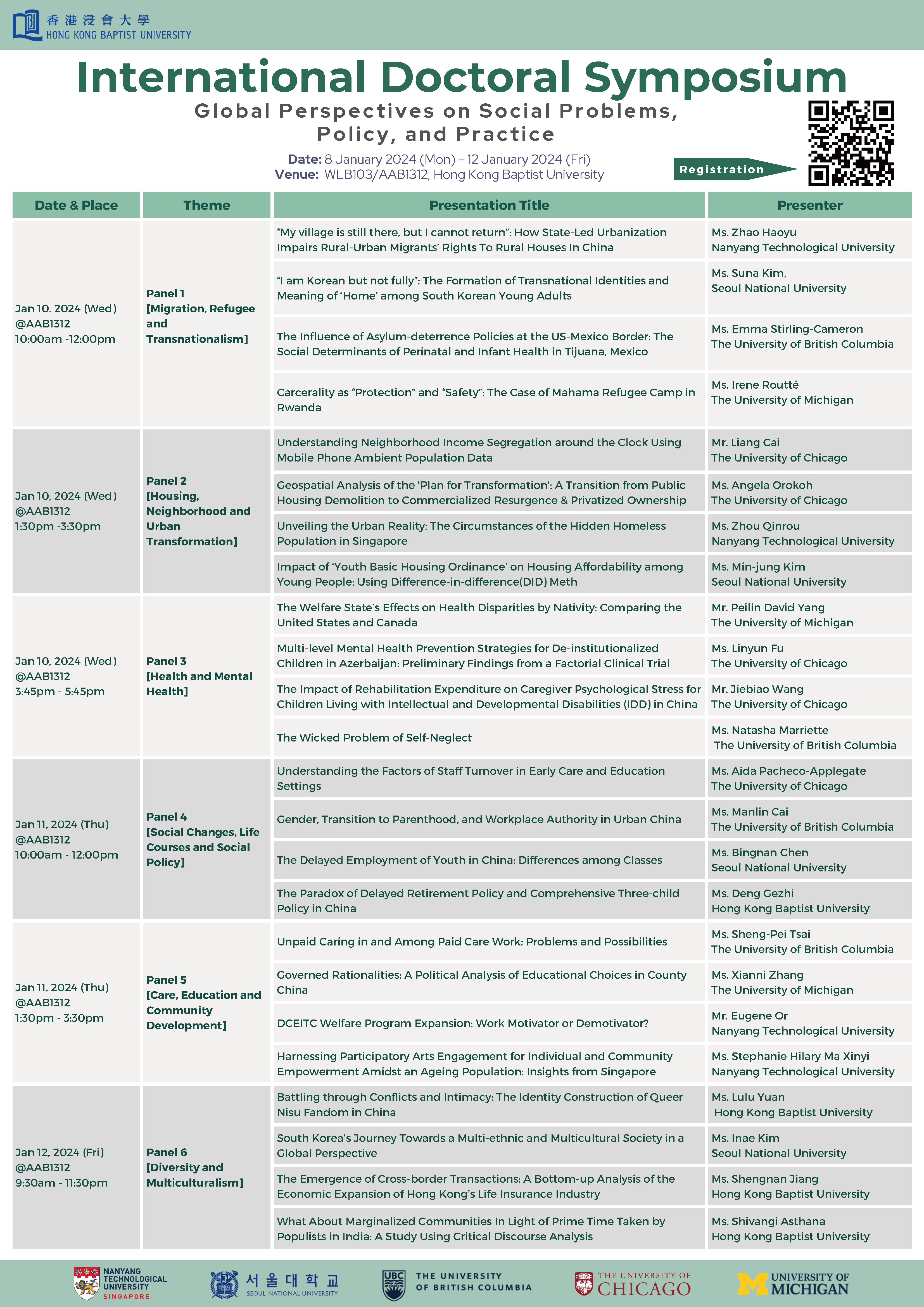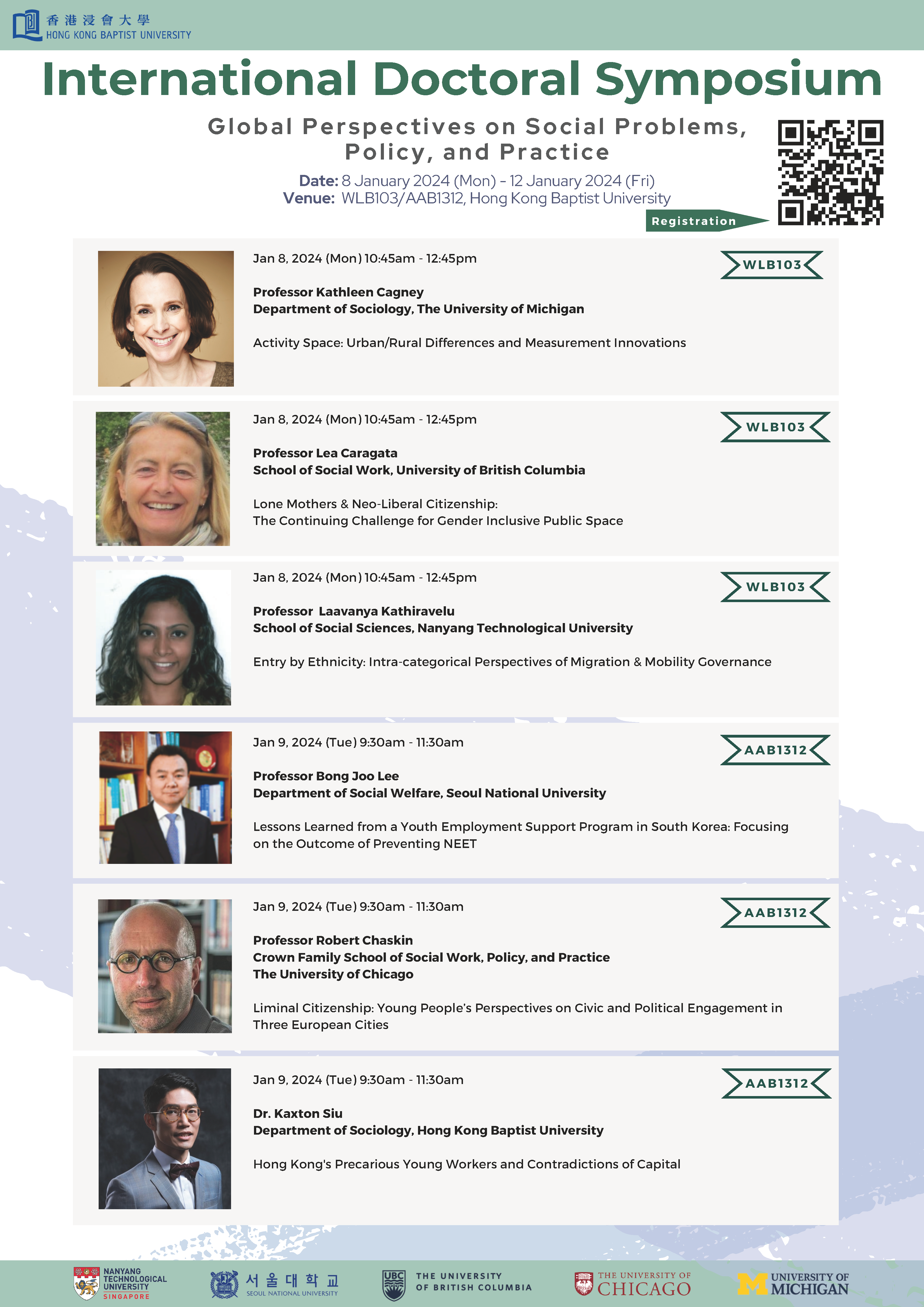January 8 - 12, 2024
Doctoral Symposium:Global Perspectives on Social Problems, Policy, and Practice
- Hong Kong Baptist University
Internationally, globalized processes such as urbanization, economic liberalization, and migration have had significant impact on the kinds of social problems experienced locally and the kinds of responses that have been embraced to address them at national and local levels. While urbanization, migration, advances in technology, and shifts in the modes and distribution of economic production (for example, from manufacturing to service economies) have produced some social benefits, these changes have also led to a number of social problems and policy challenges across a range of social arenas. While economic liberalization and growth, for example, have fostered increases in individual wealth and an expanding middle class in some places, growing inequalities in wealth and income are also evident, along with resulting social disparities in health, education, access to opportunity, and political influence. In addition to the challenges experience by marginalized populations, these challenges also place significant burdens, and often new responsibilities, on social service systems and governance regimes, both regarding their efforts to alleviate the problem at hand and to spearhead efforts to design systems and strategies for prevention. These changes have also been accompanied by changing relationships among the state, market, and civil society actors. Each actor is not only asked to play a unique and shifting role, but also may be increasingly involved in the design and implementation of social policies.
This international doctoral symposium provides the opportunity for selected doctoral students from six universities—The University of Chicago, Hong Kong Baptist University, The University of Michigan, Seoul National University, The University of British Columbia, and Nanyang Technological University—to present their work and engage in scholarly exchange and networking with their counterparts around the world. Up to four doctoral students from each university are selected based on the quality of the proposal and its fit with other submissions. The symposium includes site visits to local communities experiencing, and organizations addressing, relevant contemporary social problems.



